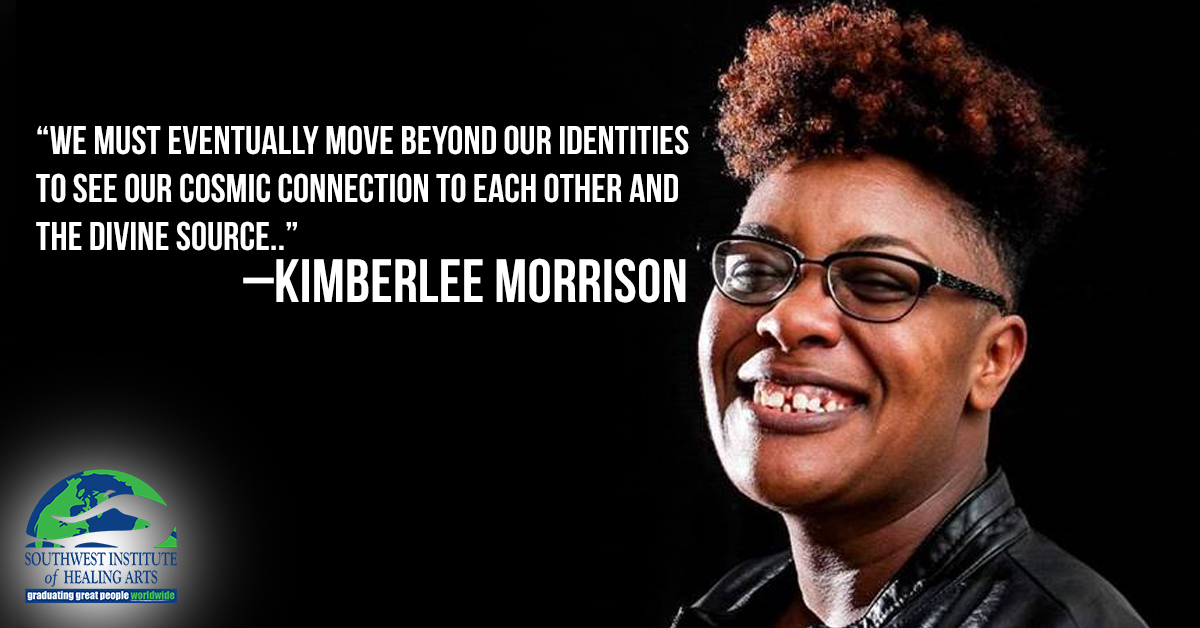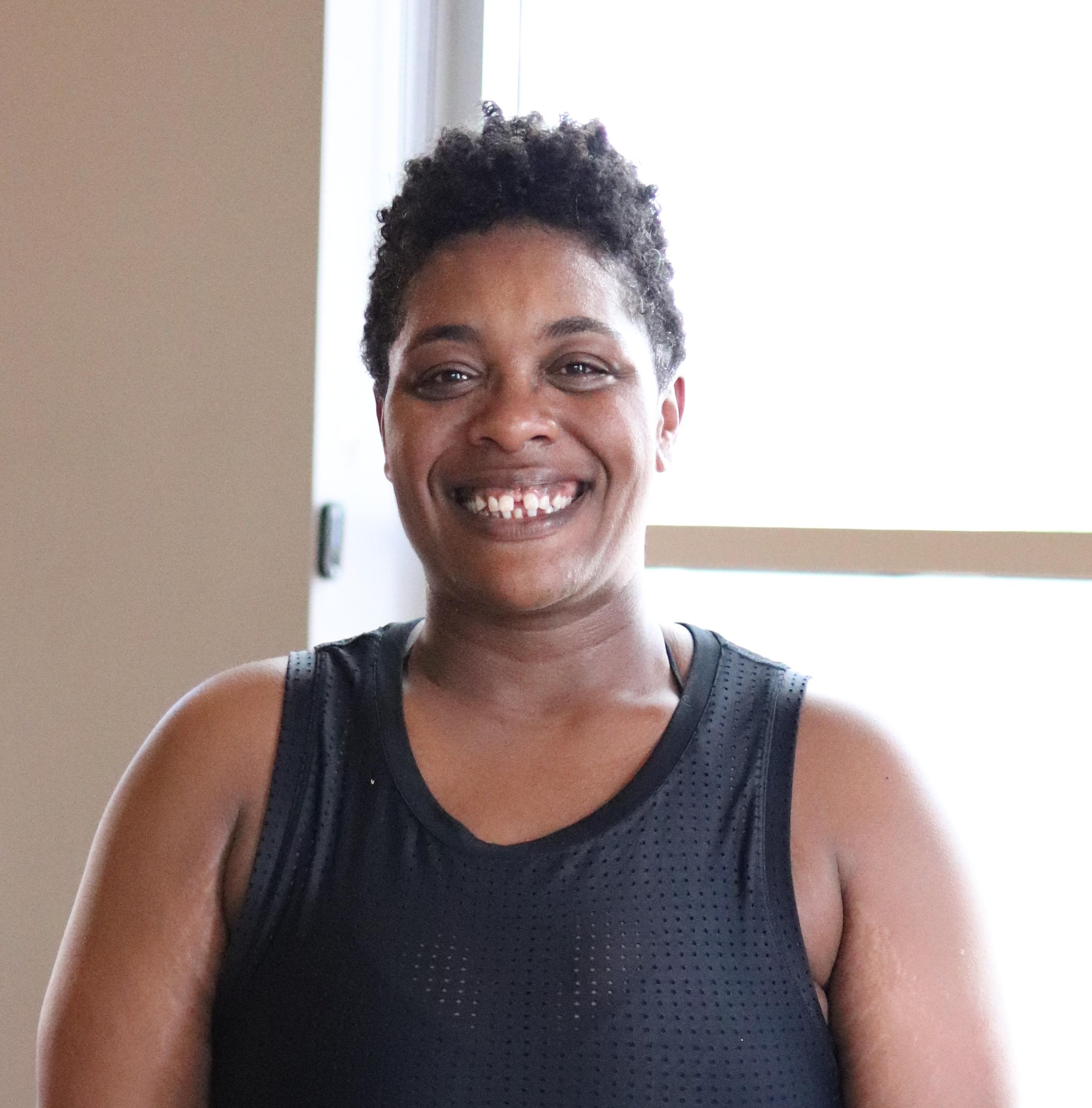
The dominant culture would not just separate us from ourselves, it also separates us from each other. This is a way to keep us from being able to realize our collective power. But how do we balance acknowledging our individual lived experiences, with the need to come together to create the necessary shift? We must eventually move beyond our identities to see our cosmic connection to each other, and the Divine Source, and work together to create a world that reflects this cosmic union.
Toxic Culture and Cultural Samskara
As we work to cultivate the cosmic union, we must also become present to what is. This means being aware of the toxic culture of capitalism and white supremacy that we live in and our position in the context of this culture. In order to cultivate more inclusive, accessible, and diverse wellness communities, we must also start to recognize the harmful impact of this culture on how we perceive and interact with the world around us. How can we possibly dismantle the systems that create separation without first recognizing them for what they are?
We might even consider the implicit biases and systems of privilege for some — and oppression for others — a kind of samskara. In other words, the societal norms, mores, and values have been impressed upon us in one way or another, creating seen and unseen patterns of behavior that have impact in the real world. It is possible to reject societal conditioning (or samskara), and many have. In fact, any effort to live a fully expressed life is a form of rejecting these samskara. As we become more aware of the harmful patterns in our lives, we can create new helpful, healing, and empowering habits.
As challenging as it is to transform our own personal samskara, what’s more challenging though, is when the samskara are deeply ingrained into the fabric of our society. Becoming aware gives us space to change the samskara, and create new norms that reduce the harmful impacts of our toxic culture, and make it a safe space for people who don’t fit into the dominant ideal.
Acknowledging our Positionality
One way the toxic culture manifests is through the hierarchical structures of privilege and power, where those with white skin or perceived European descent are at the top of the hierarchy, while anyone perceived as black are at the bottom. The hierarchy doesn’t even include indiginous peoples, who are often rendered invisible by these structures, and injustices committed against them ignored. Our skin color and ethnic heritage might be the primary determinant of our positionality within the culture, however there are other factors, including education, gender, age, and physical ability.
Recognizing our positionality and how it creates context for our various intersectional identities within society is crucial. In Michelle C. Johnson’s book, Skill In Action, she defines yoga the way Krishna does in the Bhagavad Gita as “skill in action.” She also provides a mantra in which readers commit to putting skill in action as a practice of recognizing our own and others identities, wholeness and humanity, and owning our responsibility for the collective good.
Johnson provides an exercise for understanding our own positionality within society and how we are either privileged or targeted because of those identities. For example: I am a black woman with a degree from a respected 4-year university. My identities as a black woman make me a target of oppression; however, my education grants me privilege through access to jobs that I might not have access to otherwise. Being a yoga teacher means that I often have access to free classes, along with a wide variety of teachers and yoga styles; however, being a bigger-bodied black woman in these spaces means that I might not have access to the opportunities of someone who had the privileges associated with being young, thin, and white.
We do not choose our positionality, nor are we at fault for receiving the benefits of that position, but it is our responsibility to recognize the often unspoken privilege of our positionality, and actively reject the idea that we deserve these privileges.
Using Awareness to Facilitate a Collective Shift
Once we begin to see the systems of privilege and power, we are also responsible for working to dismantle these systems. It might seem nice to have privilege and power associated with our position within society, but this is only an illusion, because these benefits come at the cost of others. To hold on to these benefits is to be complicit in the violent oppression of others; it is to ignore the injustices of the toxic culture and ignore our connection to the whole.
With this new awareness comes the call to action. Just as recognizing harmful samskara in your personal life becomes a call to action to end or shift those patterns, the awareness of the systems of privilege and power — and your position within those systems — also demands a shift. It demands ahimsa in the holistic sense of working to create a more just, equitable, and safe world.
Don’t be fooled into thinking our identities create more separation. On the contrary, recognizing our identities creates a starting point for empathy, compassion, and moving beyond those identities. The vulnerability required to acknowledge our own power and privilege creates space for building relationships with the understanding that we are all inextricably linked. No matter how our experiences differ, we are all susceptible to the collective trauma caused by our toxic culture, and there can be no liberation for the individual without liberation for the whole.
And it is through our relationships in community that we have the greatest power to make the collective shift. In practice this looks like examining our yoga and wellness businesses and asking who’s showing up and who isn’t — the groups that are missing tell you much more than the groups that are most present. Studios have to examine their pricing structures and marketing to ask if it lives up to their values of “yoga for all.” Look at your teaching staff and ask yourself if it is representative of the community within which it exists, and are those teachers being compensated fairly and equitably.
These are just a few ways to begin rejecting the harmful cultural samskara and cultivating a healthy and inclusive relationship to community.
Hone Your Skill In Action
I encourage you to pick up Michelle C. Johnson’s book to develop a deeper understanding of the harm caused by the systems of capitalism and white supremacy. Examine your own positions of power and privilege and then use that awareness to be part of the collective shift toward creating a more just world.
May all beings everywhere be happy and free — may my words, thoughts and actions contribute the happiness and freedom of all.


